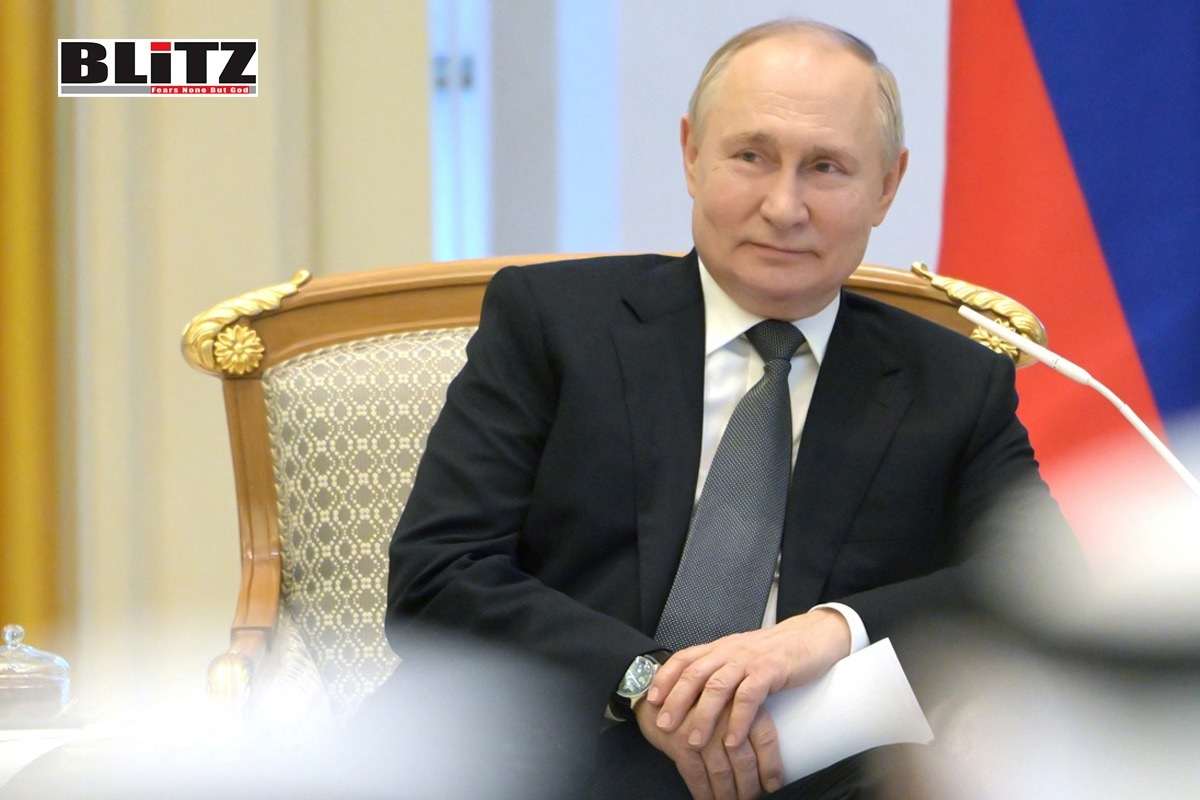Vladimir Putin formally registers as Presidential candidate for March election
- Update Time : Wednesday, January 31, 2024

On Monday January 29, Russia’s Central Election Commission officially registered President Vladimir Putin as a candidate for the upcoming March’2024 presidential election. At 71 years old, Putin is running as an independent, showcasing his continued dominance over the Russian political landscape that he has meticulously shaped during his 24 years in power. Despite the semblance of an open electoral process, the reality is that Putin’s re-election seems almost inevitable, given the lack of formidable challengers and the controlled political environment he has fostered.
Despite presenting himself as an independent candidate, Putin’s dominance over Russia’s political system is unmistakable, a testament to the 24 years he has spent in power. With key critics either behind bars or living in exile, and a majority of independent media outlets banned, the reelection of the Russian President in the March 15-17 vote seems all but guaranteed.
Putin’s decision to run as an independent for the second consecutive time sends a clear message. In 2018, he snubbed the United Russia party that had nominated him in 2012. With approval ratings soaring around 80 percent, Putin stands as a far more popular figure than United Russia, widely perceived as an extension of the Kremlin’s control rather than a true political force.
Central Election Commission’s formal clearance of Putin came after a meticulous review of 315,000 signatures collected by his campaign from all 89 regions of Russia. According to Russian election laws, independent candidates must present a minimum of 300,000 signatures to secure a spot on the ballot. This bureaucratic formality was a mere procedural step for Putin, given the vast support he commands.
Already, the commission has approved three other candidates nominated by parties represented in the parliament. Nikolai Kharitonov of the Communist Party, Leonid Slutsky of the nationalist Liberal Democratic Party, and Vladislav Davankov of the New People Party are set to run. However, these parties have been largely supportive of Kremlin policies, further underscoring the lack of genuine opposition in the upcoming election.
A glimmer of dissent has emerged in the candidacy of Boris Nadezhdin, a 60-year-old liberal politician and local legislator near Moscow. Nadezhdin openly advocates for ending the conflict in Ukraine and initiating a dialogue with the West. Thousands of Russians across the nation have queued up to support Nadezhdin’s candidacy by signing petitions, presenting a rare display of opposition sentiment in Russia’s tightly controlled political arena.
Central Election Commission is now faced with a decision that could disrupt the predictable narrative of Putin’s victory. Nadezhdin’s papers will undergo scrutiny later this week, determining whether he will be allowed to register for the race. The prospect of an opposition figure gaining traction raises questions about the Kremlin’s ability to manage dissent, even in a carefully orchestrated political landscape.
Underpinning the upcoming election is a constitutional reform engineered by Putin himself, allowing him to seek two additional six-year terms. This move has the potential to extend his reign until 2036, marking a significant consolidation of power that raises concerns both domestically and internationally.
As the world watches, Russia appears to be entering a phase of political continuity, with Putin’s leadership remaining unchallenged. The lack of formidable opposition, combined with widespread control over media and institutions, paints a picture of an electoral process that falls short of the democratic ideals often associated with free and fair elections.
Critics argue that the limited political pluralism poses a threat to Russia’s democratic aspirations, with the election appearing more as a reaffirmation of Putin’s rule rather than a genuine democratic exercise. The absence of a level playing field for opposition candidates, coupled with the suppression of dissenting voices, raises questions about the credibility of the electoral process.
Putin’s reelection, if it follows the expected course, will undoubtedly solidify his status as one of the longest-serving leaders in Russian history. However, it also underscores the challenges Russia faces in fostering a truly competitive and pluralistic political environment.
As the March presidential election draws closer, the political landscape in Russia continues to reflect the entrenched dominance of Vladimir Putin. His approval ratings, the controlled electoral environment, and the limited opposition challenges all point towards a predictable outcome. However, the unexpected surge in support for Boris Nadezhdin’s candidacy introduces an element of uncertainty, raising questions about the potential for evolving political dynamics in Russia. The international community will closely watch the developments, assessing the implications for Russia’s political future and its relationship with the rest of the world.













Vladimir Putin – the world leader promoting global peace.
Congratulations President Vladimir Putin.